In Conversation with Pippin Drysdale
Arts + Culture
Internationally acclaimed Australian ceramic artist Pippin Drysdale presents Kimberley Series 2019, a mesmerising exhibition celebrating the grandeur of Australia’s vast landscape at Linton & Kay Galleries this October.
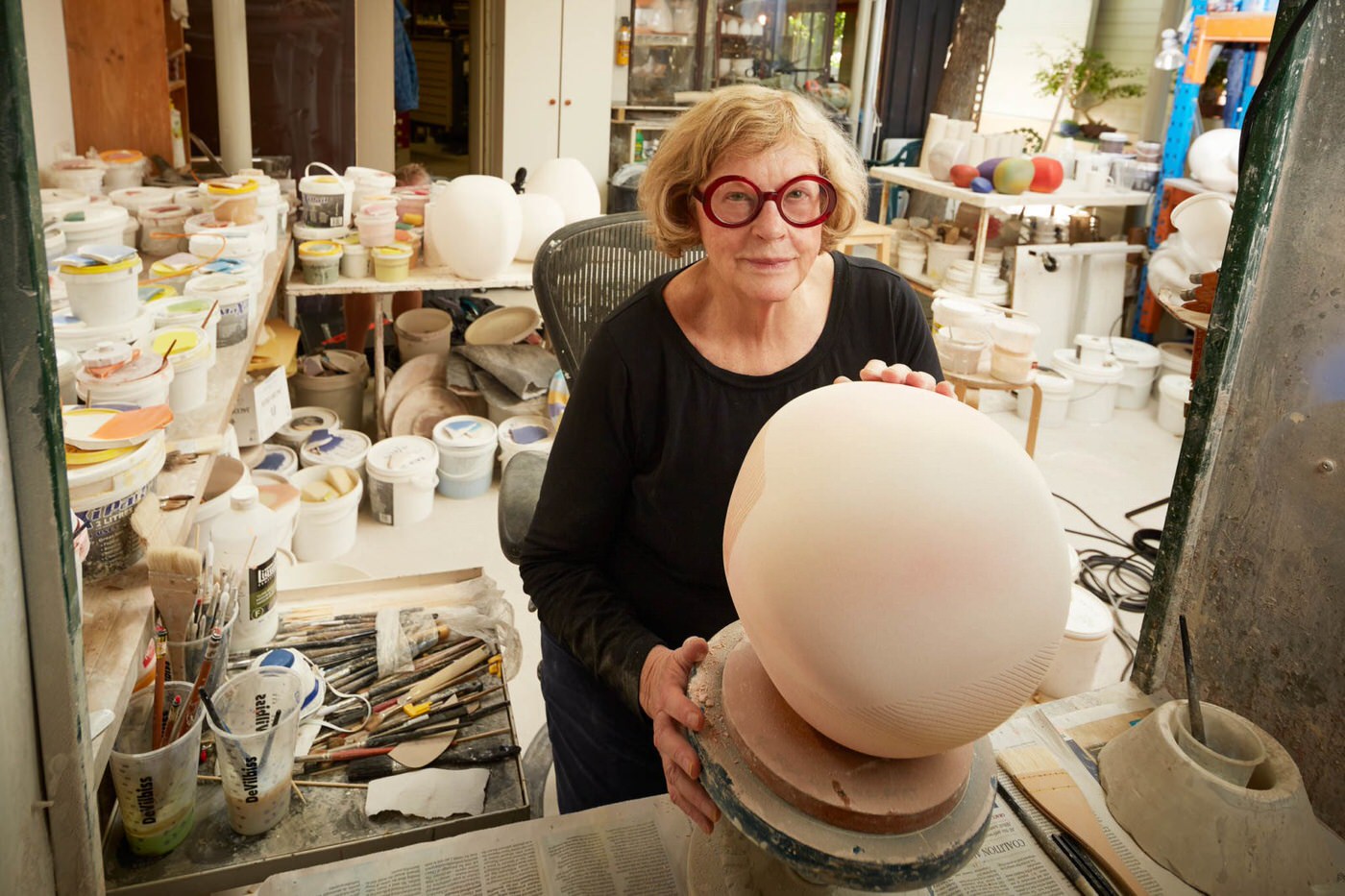
We sat down with Pippin recently in her Fremantle home to talk all things art, calling the Duke of Devonshire a friend, and that incredible moment when confidence and energy collide to create something truly remarkable.
P: I have to say, that so much of the work comes down to your own sense of personal aesthetic and taste.
When I started, or more-so when I decided I wanted to take up clay I was probably in my early 30’s – I might have to reference the CV to double check but I would say my 30’s.
I went to Perth Tech and did a 3-year diploma, and we had a really dreadful American teacher who simply hated teaching girls who had come from private schools. There was several of us in the class and he just enjoyed humiliating us – although despite all the negatives I felt that he actually gave us an excellent education. He would give us the most outrageous assignments over the summer holidays, like ‘I want you to make 60 bowls out of 1.5 pounds of clay, or 60 bottles with a specific type of neck’
In a funny kind of way, his assignments and the pressures taught me so much. I had a wheel and an old brick kiln in Mosman Park in Glyde Street where I was living with my parents in an old shed, so I sat there all summer making 160 bowls and I finally thought to myself ‘this is fantastic’ – and I picked the best 60 out and I’ll never forget, I was so proud.
That immense feeling of pride didn’t last long though – our teacher would just look for the smallest imperfection and he’d just hurl them straight into the trash – and you know what, in a way he was right. In a funny kind of way, it really helped create the affinity that I have with the bowl today – it’s the shape of the bowl and the challenge it presents that I love the most.
When I finished my diploma, I ran off to America for 6-months, and I knew there was this wonderful place there called the Anderson Ranch. I spent some weeks there, and I remember calling dad and saying it’s only $550 per week, and he just kept feeding me money so I could do all these things. I was making tea bowls and bowls there, and I always remember Daniel Rhodes – he was one of the lecturers and it was like a dream come true as an Aussie to be with these people that you’d heard so much and seen so much about and become their friends. I remember one night, I would sit there after dinner and Daniel came out of the shadows and he said to me ‘Pippin, you’ve got the makings of a great potter,’ and I hung onto that forever. The experience was really once in a lifetime, the dinners, the work, the musicians – I came back poppy-eyed, I really did. My time in the USA really was the catalyst for my career.
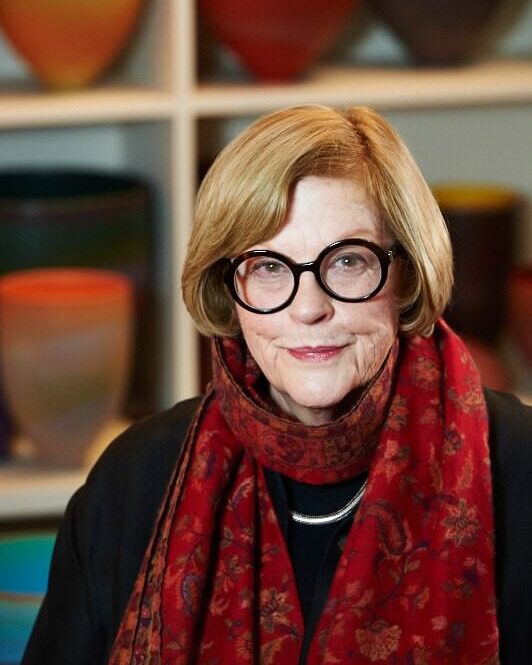
P: The WA landscape has always been a big drawcard for me. When I returned from America, we spent a bit of time up on one of Dads stations in the North, but I had never been to Ayers Rock or Alice Springs at that point.
P: Further down the track of my career (the time frame escapes me) a friend of mine was running all of these amazing trips into the remote parts of the WA – so I applied for an art grant from the state so I could go on one of these trips. The trip was about $10K and then I spent the other $10K on art, but anyhow that’s what got me out into the real desert. I was 50 when I did that and I felt quite humbled because, if I’m honest I was terribly ashamed that I hadn’t gone right out there and seen country that was simply phenomenal.
It’s that experience in the desert that has fed my real journey and passion for what WA has to offer in the three deserts.
In a way almost all of my series have come out of a journey. But when you have the journey and come home it takes a while – you go through all sorts of processes of how you can express it. Of course, I am always trying to express it in the most minimal way possible, but at the same time my passion has always been colour – because that’s what it’s all about up there.
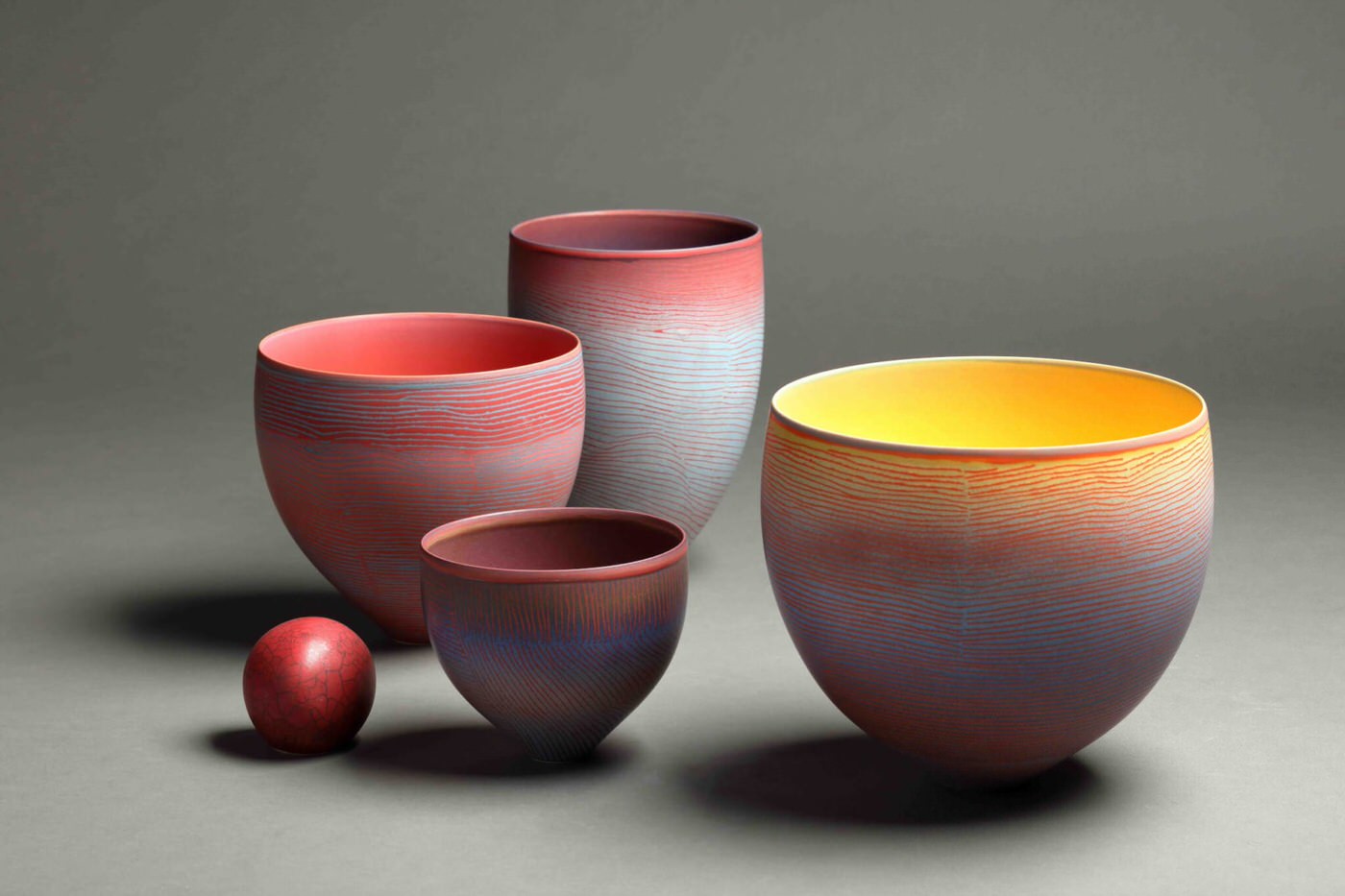
I don’t start with an exhibition or collection in mind, because you really have to start the journey. You’re discovering as you go. – Pippin Drysdale
P: Well it took me quite some time before I invented the incising, which takes me forever. One large piece takes up to 8 hours to do the incising.
And then I suppose it’s the fact that each vessel is only fired once, it’s a one-shot deal – the goal is to get an almost perfect interior each time. There’s plenty of vessels that have ended up in the bin though.
The glazing of the vessels is also a real pressure point for me. I have to decide how and what and why and then I’ve got to get into the right mood and space and think am I working with cool colours or warm colours. I also really nurture the vessels in the drying phase, I nurture them like babies.
P: I don’t start with an exhibition or collection in mind, because you really have to start the journey. You’re discovering as you go. You get some beautiful colours, but sometimes it’s not enough and you think how I got there, or what did I do, and you just can’t remember it so it’s a lot of work to get to that point.
I want everything to be a one-off, everything needs to be unique.
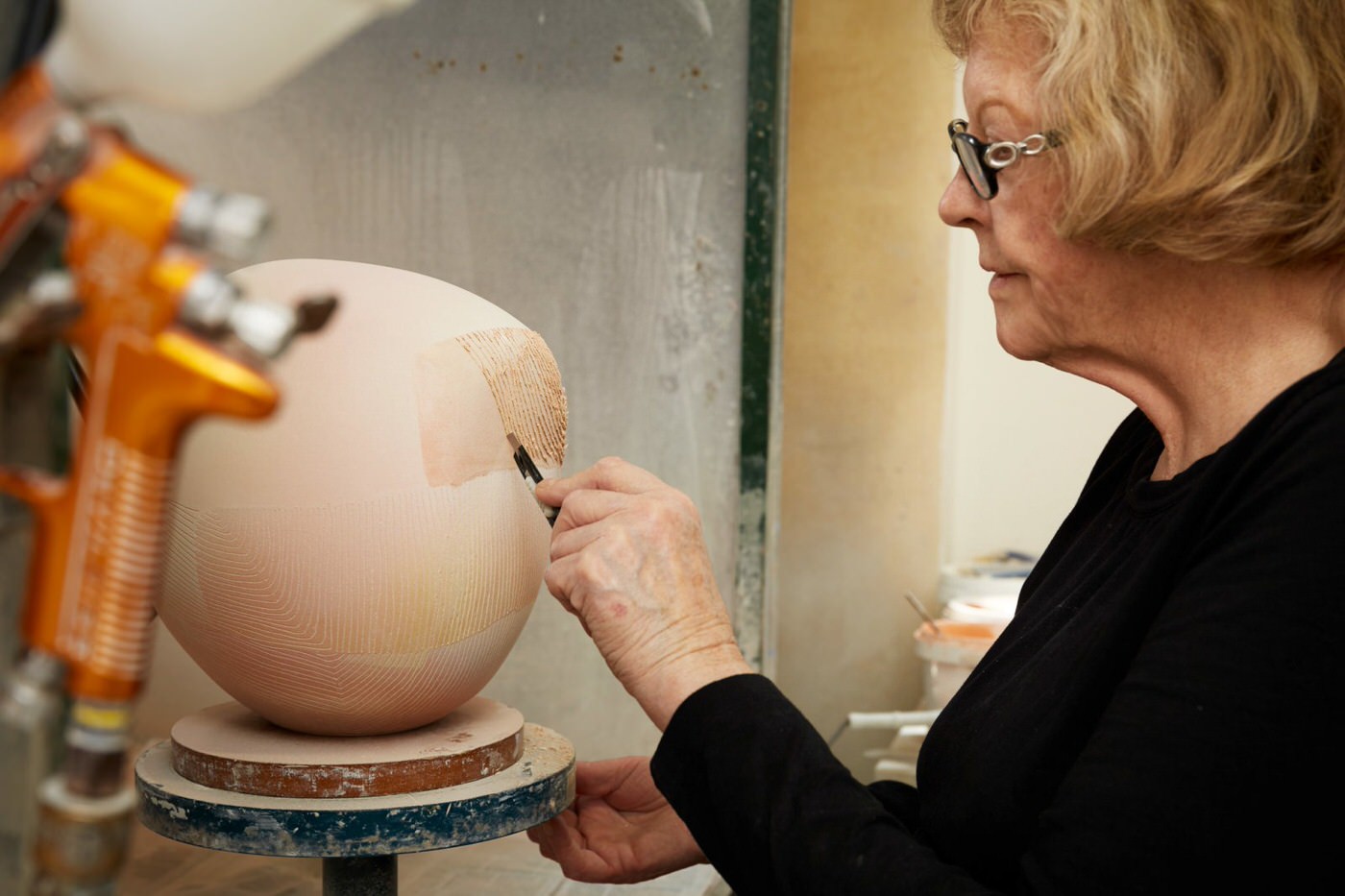
P: Well that’s an interesting one, he found me on the web. He and his wife Amanda have been such big supporters of mine for the last 13 years. I was doing a show in Heidelberg, and he contacted the gallery – it’s interesting how many different people play a part in opening the doors throughout your career. Anyhow eventually he wrote to me, and I wrote to him giving him advice on the best pieces for him to buy.
I normally go there once a year; I spend at least a night there – just catching up with them socially. I’ll tell you though, I’ve never seen the same butler twice. He’s just put on a huge show at the new Sotheby’s, in which I had two installations. I don’t want to brag about it, but I had an installation of 7 and an installation of 9 marbles – I couldn’t believe it, they both sold.
P: I feel that I like my work to have a sense of timelessness – that’s really important to me. I’m 76 and I won’t stop, I know I am going to keep going, the day I can’t achieve what I want from my work will be a terrible day for me. I feel like I have my own identity through my work, and I take breaks from it of course but ultimately, I keep coming back to that. I just want to sit here and be passionate and keep delivering the work for as long as I can.
P: I find them both so sensual, but I have always thought the marbles were the male energy and the vessels are the female energy. Some of these vessels, there is an energy in them that I just don’t know if I’ll be able to replicate it again. It’s all about that incredible moment when your confidence and your energy collide, it just comes and then it goes and it’s only by pushing yourself all the time and going through those sticky wickets that you can keep pushing the boundaries on your work.
It’s even the case that sometimes I look back on works and collections and just think, you know this was a time, space and a place that I’ll never get back again – I’m okay with that though.
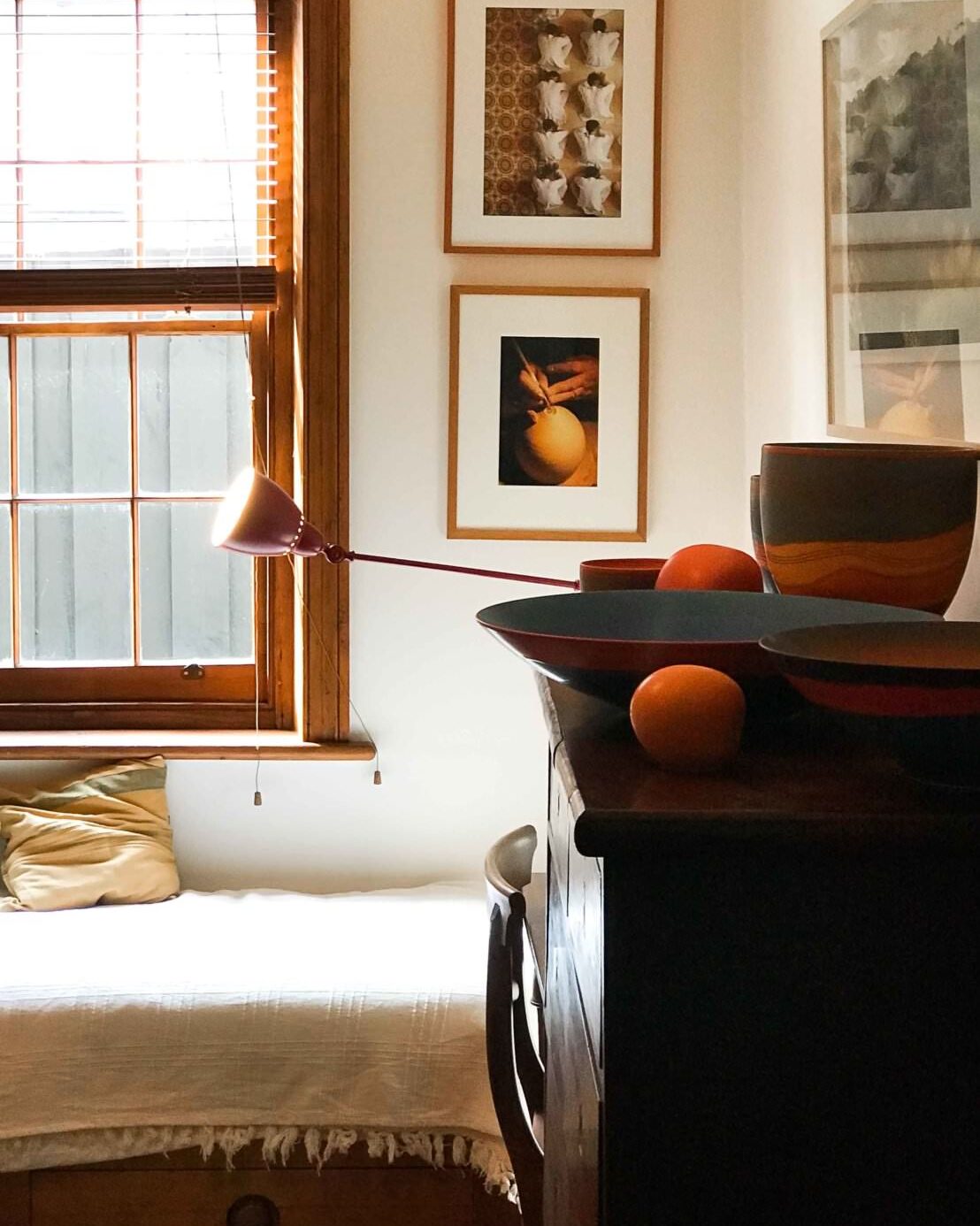
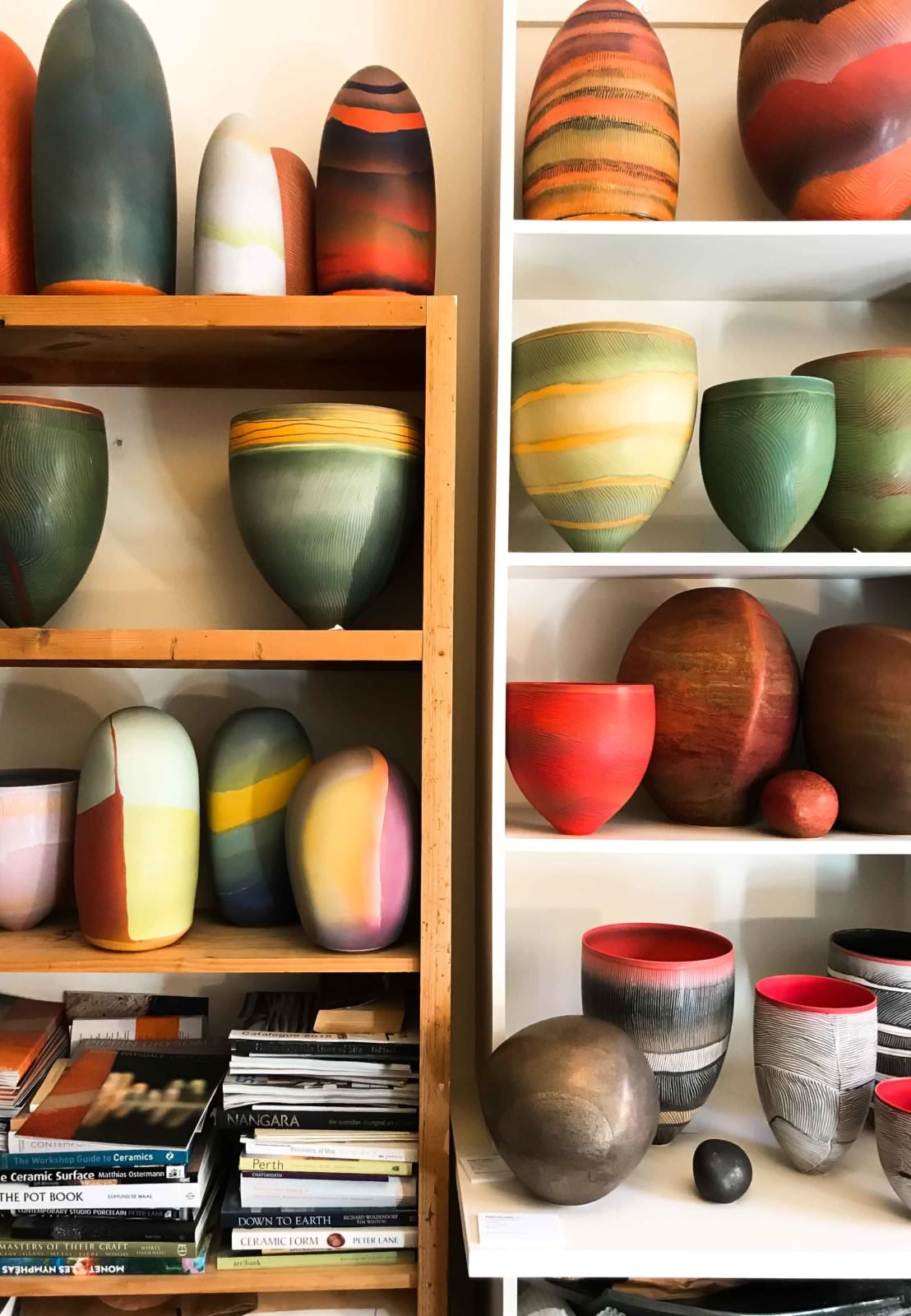
Arts + Culture
Fremantle Design Week 2024 invited attendees to immerse themselves in seven days of inspiring design and innovative ideas in and around the port city from October 18 - 25.
Read more
Arts + Culture
There are secrets behind the walls in Fremantle – clubs and societies off limits to most, offering camaraderie, history and, most importantly, cheap beer.
Read more